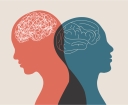Why we get Fat

The ABC Health Report had a very interesting segment on studies about why we get fat.
Dr Norman Swan interviewed Dariush Mozaffarian an Associate Professor from Boston who is also an Epidemiologist at Harvard School of Health. Following are some notes from the episode.
Studies looked at the main determinants of very slow weight gain - examining lifestyle changes simultaneously.
Every person gains about half a kilo a year (on average) which is not noticeable, but does allow you to become overweight.
Life style factors for long term weight gain
They looked at three separate long term studies i.e. 10,000 people over a year with up to 20 years of follow up.
The Findings
Not all food and beverages are treated equally. This goes against conventional wisdom like everything in moderation, total calories and adjusting the fat content in food.
It found there are very big differences in how foods relate to weight gain.
Some foods when increased did not lead to weight gain. (loss actually)
Loser Foods
Fruit, nuts and whole foods - when you use these foods you displace other foods in the diet and lose weight.
Nuts are associated with relative weight loss.
Neutral Foods
Low fat diary, whole fat milk and cheese (surprisingly).
Michael Mosely warns about low-fat or altered foods.
Weight Gain
Foods associated with weight gain include the obvious ones like white bread and refined foods.
Cutting fat out of your diet to get weight loss was not substantiated by the science.
Weight Positive Foods
Important was the quality of the carbohydrate you eat
Any kind of refined carbohydrate and complex sugars (starches refined grains) lead to weight gain.
Potatoes (no matter how prepared), all types of refined grains (breakfast cereals, white bread, white rice)
Sugars
Meats processed and unprocessed. (no explanation more study required)
When you eat a refined food white bread or potato it has almost the same metabolic effect on your body as eating table sugar.
We breakdown those long chains of carbohydrate which are sugar almost immediately. (burst of sugar - same as eating sugar).
Carbohydrate quality
For a balanced diet we must look at overall carbohydrate quality.
Hi GI foods convert into sugar quickly and in turn lead to more food being eaten and feeling hungrier quicker.
A study showed with children if they have a high GI breakfast they will eat more for lunch.
Hence what you eat at one meal also effects what you eat at the next meal.
It is important to concentrate on foods with good carbohydrate quality.
Pasta has low GI compared to potatoes and white rice and if cooked al-dente it is even lower and if mixed with vegetables (lower GI).
Fat type (Saturated, Polyunsaturated or Monounsaturated) did not matter in terms of weight gain.
This does not mean that other health effects of these fats did not matter, just weight gain is not influenced by preference.
Physical activity (up and down) in terms of weight gain. Television watching and sleep deprivation are linked to weight gain.
The study found the overall effect of diet was 2 to 3 times the effect of physical activity.
Sleep is associated with weight gain, low sleep (less than 6 hours) decrease sleep leads to increase hunger - caused by our change of preferences to comfort foods when losing sleep.
refer How to lose weight while you sleep
Television watching
Major impact is through the diet not lack of physical activity (2 major studies confirmed this)
There was reduced weight with less TV however this was due to kids snacking less (advertising - subconscious effect).
If TV was replaced with reading they still lost weight.
Hence it is easy to gain weight (half kilo per year) however a few minor changes can keep that down.
Avoid processed refined foods. Fruits, vegetables, whole grains, nuts and yogurt are best for losing weight long term.
SEARCH ARTICLES
advanced search tips examples: "Yoga Meditation" Therap* +Yoga +MeditationRecent Posts

Nov 27 2025
The Psychology Behind the Primacy Effect

Jun 24 2025
Microplastic Exposure: Bottled Water vs Tap

Jun 09 2025
Squats for aligning hips

Apr 29 2025
Creative Thinking

Jan 28 2025
How to talk to someone you disagree with

Jan 27 2025
Alcohol Causes Cancer

Jan 14 2025
The role of the Amygdala

Oct 04 2024
A Support Guide for Anorexia Nervosa

Jun 25 2024
Sleep better



